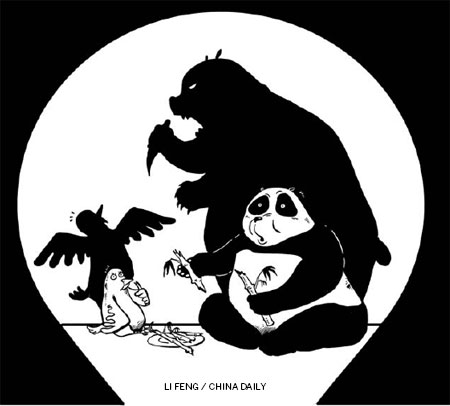18th party congress Preview | M.D. Nalapat

Since the 1980s, a key policy of the Communist Party of China has been to take advantage of prevailing conditions to ensure faster economic growth. From 1981 to 2001, a period when better relations with the United States and Europe were crucial to economic growth, China followed a policy of deepening trade and other ties with the West to its immense advantage.
But since 2001, the mistakes committed by the US-led NATO in its wars in Afghanistan and Iraq have played a role in deteriorating the NATO countries' economies. Also during this time, Asia, principally, and Africa and South America have emerged as key areas of development.
This prompted Chinese leaders, led by President Hu Jintao and Premier Wen Jiabao, to take measures to expand Chinese diplomacy from its earlier concentration on the US and the European Union toward its Asian neighbors, and Africa and South America. Today, 10 years later, China is among the top three economic partners of countries in all the three regions, while in several other places (including India), it has replaced the US in the first position.
NATO frequently uses military power for commercial advantage, most recently in Libya, where oil companies based in NATO member countries have cornered unmerited concessions in the oil sector. But following Deng Xiaoping's "hide brightness and cherish obscurity" principle, China has refrained from using its growing military power to secure commercial advantage. Beijing knows that such gains would be temporary, and that it is best to secure amicable cooperation and refrain from using force.
Even in Libya, the time is not far off when people of that country start protesting against NATO's over-lordship and roll back the privileges that have been grabbed by the NATO-bloc companies, similar to the process that has occurred in Russia. In other countries such as Iraq and Afghanistan as well, commercial advantages secured by companies on the back of their military supremacy will not survive long after the withdrawal of US-led NATO forces.

I’ve lived in China for quite a considerable time including my graduate school years, travelled and worked in a few cities and still choose my destination taking into consideration the density of smog or PM2.5 particulate matter in the region.